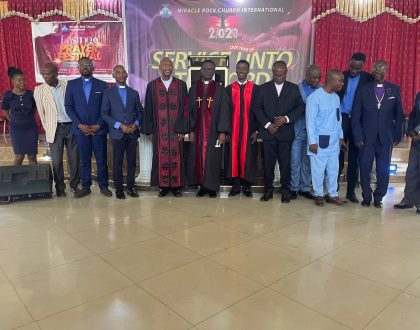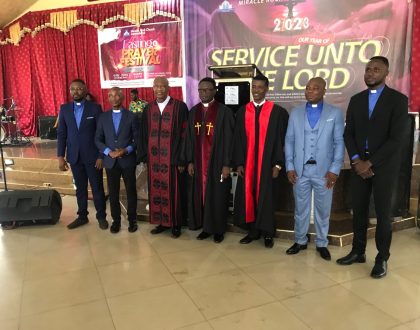Obedience: The Key That Opens All Doors

by Ed Arcton
| Obedience is not a positive word these days. For some it seems cold and harsh. For others it carries overtones of legalism in religion or control in other venues. Perhaps for all of us it challenges our inherent drive toward autonomy and the individualistic bent that pervades our culture. As Americans we do not want anyone telling us what to do—not even God.
But how many of us have stopped to think that our wariness of obedience may be keeping us from one of the great keys to the enjoyment of God and the transformation of our lives? Are we aware that the Bible and the saints throughout history affirm the insight of John Calvin that “all true knowledge of God is born out of obedience”? The High Cost of Disobedience
The Blessings of Obedience Our freedom begins when we respond to the love of God as it meets us in Jesus’ call to repent and believe the gospel (Mark 1:15). In Greek, these two verbs are in the imperative mood and thus are commands to be obeyed. They summon us to turn from the disobedience of unbelief to the obedience of faith (Rom. 1:5). And the gift of faith makes this possible for us. Confident trust in Jesus and his message gives us life, turns us around, frees us, and sets in motion a great reversal in our lives. This transforming reversal progresses as we follow Jesus Christ, who says, “If anyone would come after me, let him deny himself, and take up his cross and follow me” (Mark 8:34). Following Jesus means taking steps forward in what might be called “the obedience of faith”—moving steadily away from our former areas of disobedience and back into the will of God. The power to do this comes from the Holy Spirit, whose work it is to conform us to the image of Christ (Rom. 8:13, 29). Though there will be times when we disobey, there is forgiveness as we repent and return to the Lord. This process of discipleship or sanctification, which restores the image of God in us, takes a lifetime and is completed only in the world to come. But we can make great progress in this world, which should be our highest priority. The Key to Obedience This is the heritage of all who have come to a living faith in Jesus Christ. If we would enjoy the fullness of this life, let us embrace the obedience of faith and love and daily seek to walk by the Holy Spirit, through whom all these blessings come (Gal. 5:16–25). And in prayerful meditation upon Jesus’ words, let us ask the Sprit to teach us and transform us more and more into his image. The Blessings of Obedience Our freedom begins when we respond to the love of God as it meets us in Jesus’ call to repent and believe the gospel (Mark 1:15). In Greek, these two verbs are in the imperative mood and thus are commands to be obeyed. They summon us to turn from the disobedience of unbelief to the obedience of faith (Rom. 1:5). And the gift of faith makes this possible for us. Confident trust in Jesus and his message gives us life, turns us around, frees us, and sets in motion a great reversal in our lives. This transforming reversal progresses as we follow Jesus Christ, who says, “If anyone would come after me, let him deny himself, and take up his cross and follow me” (Mark 8:34). Following Jesus means taking steps forward in what might be called “the obedience of faith”—moving steadily away from our former areas of disobedience and back into the will of God. The power to do this comes from the Holy Spirit, whose work it is to conform us to the image of Christ (Rom. 8:13, 29). Though there will be times when we disobey, there is forgiveness as we repent and return to the Lord. This process of discipleship or sanctification, which restores the image of God in us, takes a lifetime and is completed only in the world to come. But we can make great progress in this world, which should be our highest priority. The Key to Obedience This is the heritage of all who have come to a living faith in Jesus Christ. If we would enjoy the fullness of this life, let us embrace the obedience of faith and love and daily seek to walk by the Holy Spirit, through whom all these blessings come (Gal. 5:16–25). And in prayerful meditation upon Jesus’ words, let us ask the Sprit to teach us and transform us more and more into his image.
|
|
| Thomas A. Tarrants, III, D. Min. Vice President of Ministry, C.S. Lewis Institute, has lived in the Washington, D.C. area since 1978 and served as President of the C.S. Lewis Institute from 1998 to April 2010. Prior to coming to the Institute, he served as co-pastor of Christ Our Shepherd Church and Director of The School for Urban Mission, both based in Washington, D.C. He is the author of two books and is a consultant for Church Discipleship Services, developing discipleship programs and materials to strengthen the local church. Tom earned a Master of Divinity Degree from Eastern Mennonite Seminary and Doctor of Ministry from Fuller Theological Seminary. He is an ordained minister in the Evangelical Church Alliance. |
Recommended Posts

THE CHALLENGE AND URGENT NEED
May 29, 2023

The Workers Are Few.
May 29, 2023

Graduation and Ordination Service
May 28, 2023
